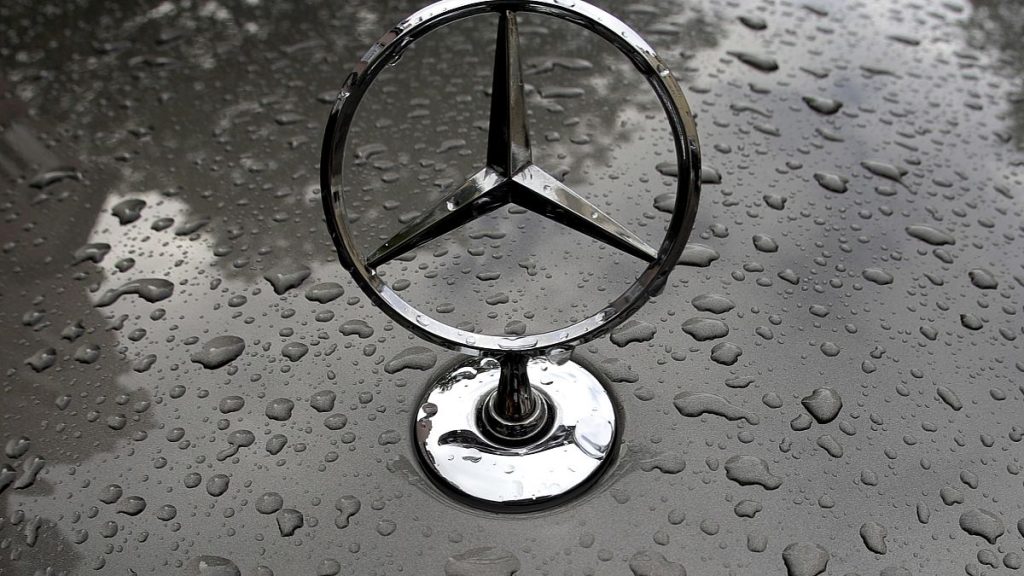Paragraph 1: Mercedes-Benz Faces Market Headwinds and Revised Profit Expectations
Mercedes-Benz, the renowned German automaker, is navigating a challenging automotive landscape marked by weakening demand and intensifying competition. The company is anticipated to adjust its mid-term profit expectations for its passenger car business, reflecting the ongoing market downturn. This revision is expected to be announced during the company’s capital markets day, scheduled for February 20th, alongside the release of its annual financial results. While the specific details of the adjusted target remain undisclosed, it signifies a departure from the company’s previously optimistic outlook of an 8% to 14% adjusted profit margin. Despite this adjustment, Mercedes-Benz is still aiming to achieve a double-digit profit margin, underscoring its commitment to profitability amidst market challenges.
Paragraph 2: The Rise of Electric Vehicles and Its Impact on Mercedes-Benz
The increasing popularity of electric vehicles (EVs) has further complicated the situation for Mercedes-Benz. While the shift towards electric mobility presents a long-term opportunity, the company’s transition has been relatively slow compared to some competitors, particularly in the face of surging demand for EVs. This has contributed to the lagging performance of the company’s passenger car business. In an effort to address rising costs and maintain competitiveness, Mercedes-Benz announced plans in late 2024 to implement substantial cost-cutting measures, targeting billions of euros in annual savings over the coming years. The specifics of these cost-cutting initiatives are yet to be revealed, adding to the uncertainty surrounding the company’s future trajectory.
Paragraph 3: Competitive Pressures from Chinese EV Manufacturers
A significant factor contributing to Mercedes-Benz’s challenges is the intensifying competition from Chinese EV manufacturers. Companies like Geely, SAIC, and BYD have rapidly gained market share, particularly in the EV segment, by offering competitively priced vehicles with modern designs and attractive features. This has put pressure on established automakers like Mercedes-Benz, which is positioned as a premium brand with a higher price point. The cost-of-living crisis, exacerbated by inflation and rising interest rates, has further dampened consumer spending on luxury goods, making it more difficult for Mercedes-Benz to maintain its sales momentum.
Paragraph 4: Impact on Sales, Particularly in China
The competitive landscape has had a particularly pronounced impact on Mercedes-Benz’s sales in China, a crucial market for the company. The rise of domestic Chinese brands, coupled with a decline in luxury spending among Chinese consumers, has led to a slump in sales for Mercedes-Benz and other German automakers like BMW and Audi. This decline in the Chinese market poses a significant challenge, as China has become a major revenue driver for these companies in recent years.
Paragraph 5: European Market Share Erosion and Trade Tensions
Chinese EV manufacturers are not only impacting Mercedes-Benz in China but have also made inroads into the European market. Their ability to offer vehicles at substantial discounts, allegedly fueled by government subsidies, has eroded market share for European carmakers, including Mercedes-Benz. While the EU has responded by imposing tariffs on these Chinese EVs, this action has also heightened the risk of retaliatory measures from the Chinese government, potentially jeopardizing the favorable operating conditions that German automakers have enjoyed in China, such as access to cheaper land and tax breaks.
Paragraph 6: Navigating a Complex and Uncertain Future
Mercedes-Benz finds itself at a critical juncture, facing a confluence of challenges ranging from shifting consumer preferences and intensifying competition to macroeconomic headwinds and geopolitical tensions. The company’s planned cost-cutting measures and revised profit expectations signal a recognition of these challenges and a commitment to adapting to the evolving market landscape. The success of its transition to electric mobility, its ability to compete with aggressive Chinese rivals, and the evolving trade dynamics between Europe and China will be key determinants of its future performance. The automotive industry is undergoing a period of significant transformation, and Mercedes-Benz will need to navigate these complexities strategically to maintain its position as a leading global automaker.














